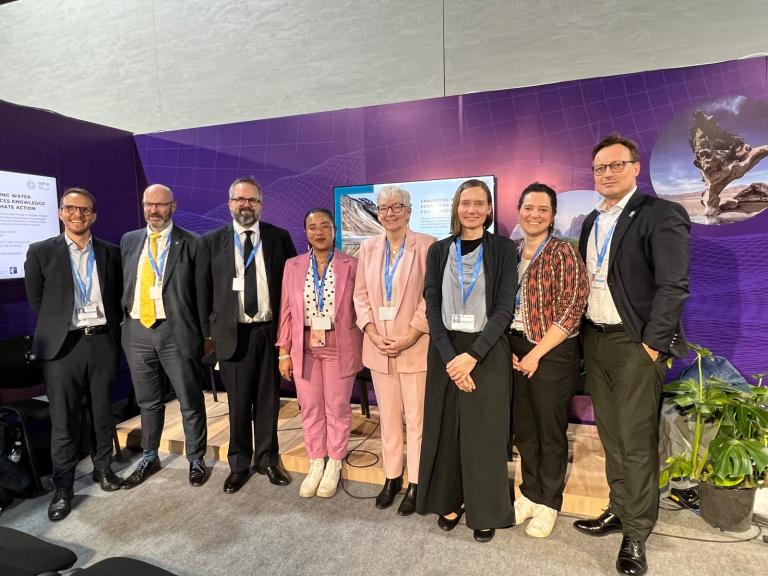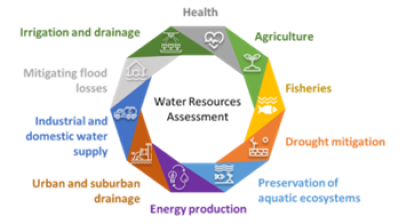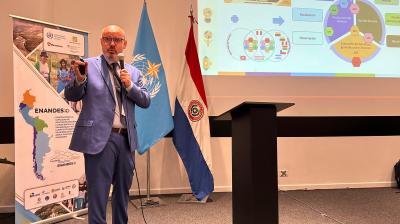Enhancing Water Resources Knowledge for Climate Action
On Water Day at COP29, WMO hosted a series of events to highlight that water action and climate action go hand in hand, and to leverage the power of visualization and art to communicate the message.

"Many of the impacts of climate change are due to water – lack of or too much. Water is a key part of our conversation,” said WMO Deputy Secretary-General Ko Barrett.
Hydrological data and information are essential for informing climate policies and design of mitigation and adaptation strategies, Stefan Uhlenbrook, WMO Director of Hydrology, Water Resources, and Cryosphere told a side event.
He presented the main findings of the State of Global Water Resources Report 2023, which can help bring this data and information to policy and decision makers:
- 2023 was driest year for rivers globally in 33 years
- Glaciers suffered largest mass loss in 50 years
- Climate change makes hydrological cycle become more erratic
- Early Warnings for All must tackle water-related hazards
- WMO calls for better monitoring and data sharing
Creative and innovative collaboration, cooperation and coordination are needed to support global data-sharing, policy decisions and investment planning.

Amir Givati, General Director, Israel Meteorological Service, and Permanent Representative of Israel with WMO, said that the water cycle in the Middle East is becoming increasingly extreme – as witnessed by recent record-breaking rainfall.
Arlene Birt, Founder & Chief Visual Storyteller of Background Stories, Graphics Officer for the IPCC 2023 Sixth Assessment Report presented on the power of visualization and messages aimed at both the head and the heart. Don’t use words like “hydrological” she said.
The event highlighted solutions across the hydrological value chain from monitoring to modelling and issuing warnings. The participants had the opportunity to discuss these topics in depth during an interactive roundtable session.
A fireside chat on how to mainstream research and solutions in the policy space saw an exchange between Ko Barrett, WMO Deputy Secretary-General, Maren Pott, Water Lead of the High-Level Climate Champions and Matthias Berninger, Executive Vice President, Public Affairs, Science, Sustainability & HSE, BAYER.
“WMO is committed to supporting policy makers by providing information on the status of water resources and ultimately support strengthening climate action and to build resilience,” said Ko Barrett.
“Therefore, cross-sectoral and multinational collaboration is needed to support global data-sharing and infrastructure investments, which are necessary to monitor and model water resources effectively,” she said.
The event was followed by “What if water could talk?” Art Performance by Meeting of Waters (MoW) founded by artist Charlotte Qin.










